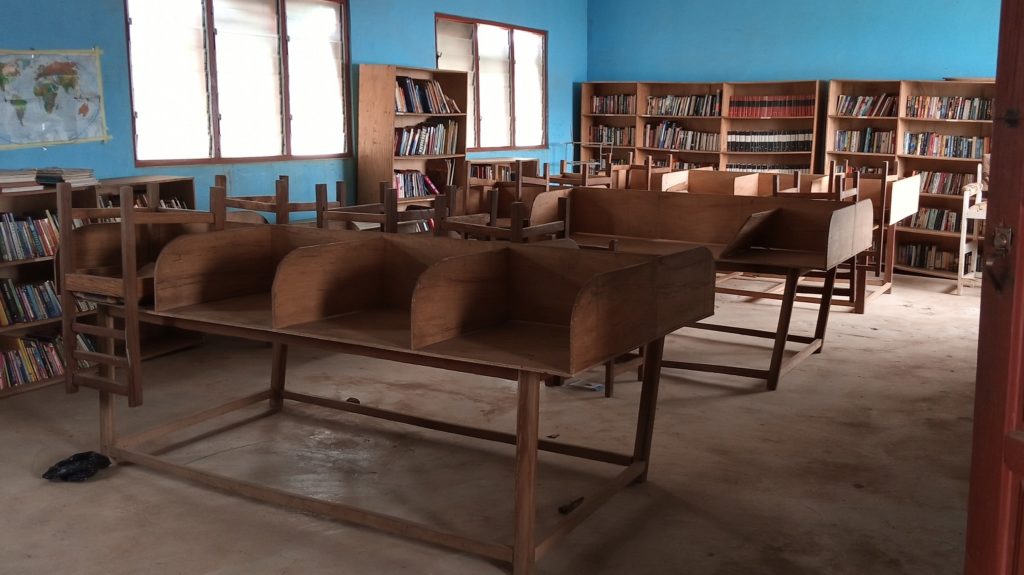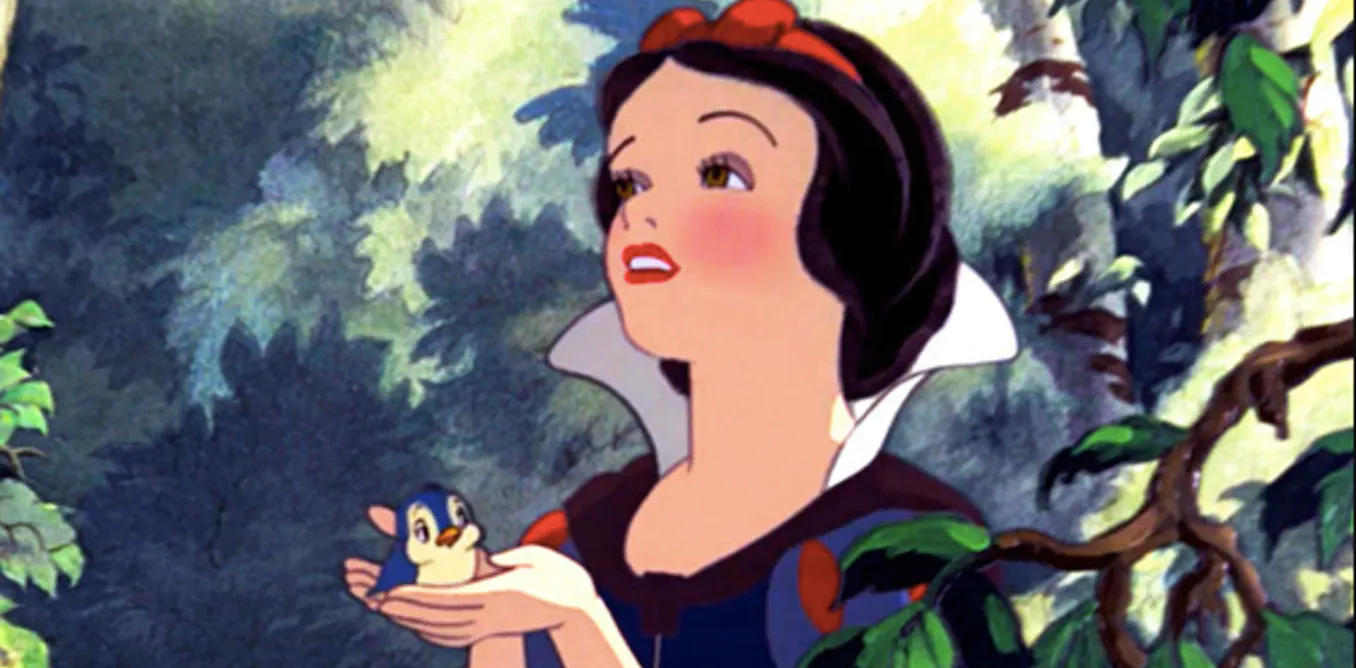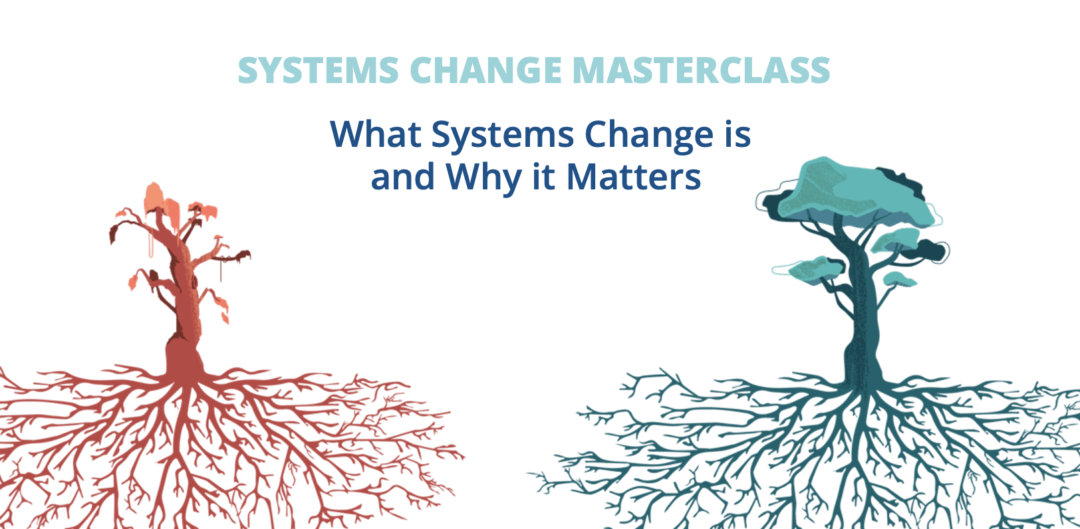Welcome to this new blog space!
The purpose of this blog is to encourage conversations and critical reflection upon complex educational issues relating to development practice, charitable engagement, social entrepreneurship, equalities education and active citizenship education more widely.
The posts will focus upon exploring practical applications of theory to everyday teaching, leadership and development practice.
You are encouraged to leave comments sharing your views, or to get in touch!
Introduction to issue of exporting/importing western fiction to Ghana
This text was originally published on the EduSpots website in 2018, but its discussion is highly relevant in 2022, as EduSpots aims to focus on the purchase of African fiction, non-fiction and textbooks as a key fundraising priority in 2022.
In December 2016, EduSpots, then named Reading Spots, shipped 7000 books to a village named Akumadan in the Ashanti Region of Ghana, to fill the shelves of the first significant community library in the North Offinso district. Upon examination of the 7000 books, we found that African authors wrote only 20. Furthermore, research suggests that only a small percentage of these 7000 books would be likely to contain African characters, with even less depicting African heroes and heroines; indeed, a study suggests that only 22% of characters in children’s books published in America in 2016 were black (Cooperative Children’s Book Center, 2016). None of the books in Akumadan were written in the dialect local to the Ashanti region: Twi. The ‘African Fiction’ shelf, though carefully labeled, was initially left with just a few books leaning against the side. When we returned three months later, and questioned young readers the titles of their favourite books, three library users from Akumadan quickly responded with ‘Snow White’. It seemed important to question of the heroes and heroines of western fiction, as Grumpy and Doc themselves question of Snow White: ‘what are you, and who are you doin’ here?’ (Disney, 1937).

Following this initial examination, EduSpots invested significant funding into creating an African fiction and non-fiction section in the adult and children’s libraries in Akumadan, alongside supporting text books chosen by the communities. EduSpots has also promoted African authors work on our feeds, and all our literacy development work focuses on African books. EduSpots has also developed our own range of books which have been co-created with communities. You can purchase them here.
However, in 2022, many EduSpots libraries and Ghanaian libraries more widely are dominated by western fiction, solely due to the cost differences in securing quality western books versus new African books. It costs roughly 10p to ship a quality second hand or new western storybook, versus £2.50 for a quality book by an African author.
This series of blog posts will seek to address several key questions for the specific purpose of informing EduSpots’ ongoing work in Ghana:
Key Questions
- Should NGOs and educational leaders acting in Ghana ensure that the fiction that is provided to schools and libraries is relevant to the Ghanaian context?
- Do the benefits of Ghanaian schools and communities being supplied with western fiction outweigh any possible negative consequences?
- Would the money spent on transporting books be better spent on buying African fiction within Ghana?
- Could EduSpots strengthen their second book collection systems within Ghana, hoping to gain more African books?
- Can EduSpots successfully work with local authors and communities in developing our own series of storybooks that we can print at low-cost?
We will use the lens’ of postcolonial theory and the capabilities approach to suggest that there are important consequences associated with NGOs and educational leaders leaving the ‘African Fiction’ shelf unstocked. I suggest that especially given the efforts made to move the Ghanaian syllabus away from Euro-centrism, it would be to undermine this work to only send western fiction.
Analysis of Issue
In 1957 the Gold Coast became the first sub-Saharan country in Africa to gain independence from European control. Prior to colonialism, Ghana was made up of a number of kingdoms; these still exist today, with different dialects being spoken in each region. Nkrumah’s government made the decision for English to continue to be the national language, seeing it as a vital tool for achieving political unity, and avoiding the potential problems of a mother tongue policy (Smock and Enchill, 1976).
In Ghana’s 1992 constitution, it states: ‘basic education shall be free, compulsory and available to all’ (Article 25), and Ghana have also committed to the SDGs, the fourth goal of which is that of delivering a ‘quality education’, thus ensuring ‘inclusive and equitable quality education and promote lifelong learning opportunities for all’ (UN, 2014). Tomasevski put forward the notion of the “4As Framework’ as a set of criteria for the assessment of whether the right to education is being met. She highlights the need for ‘availability, accessibility, acceptability and adaptability’ as a checklist of essential requirements (Tomasevski, 2001: 13). It is clear that whilst an education in Ghana is available and accessible at Primary and Junior level, there are still significant concerns with regards to the acceptability of education provided – the Ghanaian syllabus taught by teachers still holds lingering colonial narratives (Adjei, 2007), and some argue that there are issues of acceptability surrounding the fact that English remains the language of instruction in schools (Kwarteng and Ahia, 2013).
Narrowing our focus; we will concentrate upon the issue of the lack of reading fiction material available to pupils and adults that is relevant to the Ghanaian context – whether in a local dialect such as Twi or Fante, or in English yet focused upon African life. NGOs such as Book Aid International have long been exporting mostly western fiction to Sub Saharan Africa, with Book Aid International sending 205,938 books to Kenya alone in 2015 from the UK, distributing books to schools, community libraries, prisons, refugee camps, and hospitals (Book Aid, 2017). Books for Africa has sent over 38 million books to 49 different African countries, in order to ‘end the book famine in Africa’ (Books for Africa, 2017), with the charity trying to place access to books alongside that of basic humans needs. However, what percentage of these books contain African characters? How many of these books describe situations foreign to the African child? As in the case of Snow White, there is neither snow in Ghana, nor are the pupils ‘skin whiter than snow’ (Grimm); certainly, there are a number of important implications of Ghanaian pupils being only able to access texts by western authors.
Firstly, there is the consequence that the pupils’ vocabulary is limited to those words used in the books. While a pupil may become an expert in their understanding of English and American vocabulary and usage, she may struggle to converse accurately in her own community or in later employment, whether in English, or their local dialect. The pupil may even find that the lack of relevance hinders her ability and desire to read at all. Secondly, the messages underpinning the books may not relevant to the particular social issues faced by Ghanaian children. For example, the popular Ghanaian story, Kofi has Malaria, informs children of vital prevention methods for mosquito bites. It also appears that not only does the western fiction lack relevance linguistically; it also imposes an epistemological framework onto the Ghanaian child. This could lead to a decline of the values previously adhered to. Lastly, it could be argued that as a result, Ghanaian children and adults might suffer a loss of identity, and a sense of alienation from their own education system, and the stories that have been told aurally by generations before them.
We will explore the areas of language, epistemology and identity more deeply through a series of blog posts, using postcolonial theory and the capabilities approach in our analysis, before coming to a conclusion.
Using theory as a lens for analysis
Postcolonial thinking
Postcolonial approaches highlight the cultural, social and economic legacies of colonial rule, considering the imposition of language upon the previously colonized country, as well as truth-structures that position them in role of the ‘other’ (McCowan, 2015). Foucault (1965) highlights how dominant knowledge systems ensure that their version of reality is strengthened and perpetuated through discourse and social systems. Postcolonial theorists apply this notion of epistemological dominance to the relationship between colonizers and colonized (McCowan, 2015). Whilst the scholars differ in their approaches, they all highlight the impact of the ‘epistemic violence’ (Spivak, 1988: 280-281) upon the colonized whether through causing mental illness (Fanon), sustaining continued separation as the ‘other’ or ‘Oriental’ (Said), or leading to a sense of alienation from their communities and culture (Some, 1994; Adjei, 2007; Adichie, 2007). Postcolonial approaches request that this epistemic violence is part of any analysis of education in previously colonized states, whether referring to past accounts or future conceptual analysis.
Capabilities Approach:
Human development approaches argue that all humans have a right to be able to be and do what they have a reason to value (McCowan and Unterhalter, 2015). The key idea that underpins human development approaches more widely is that humans are the ends, not the means, of development (Sen, 1999; Nussbaum 2001: 18), following Kant’s categorical assertion that individuals should never be used as a ‘means to an end’ (Kant, 1975). This is a clear move away from emphasis on the individual’s role in wider economic growth given in the human capitol approach (e.g. Mincer, 1981); Sen (1999) recognized that low GDP does not always equate to a lack of well being. Capabilities are identified as freedoms that enable people to achieve ‘beings and doings’ that they deem to be of importance, which are known as ‘functionings’ (Sen, 1999). For example, a child might have the capability of being able to read, due to the provision of books, and when she chooses to read the books, reading becomes a ‘functioning’. Education under this approach plays a vital role in empowering individuals, equally, towards fulfilling the capabilities they desire (McCowan and Unterhalter, 2015).
This ties to a corresponding theory of ethics offered by Singer, in which he suggests that the right action is to be determined by the most number of ‘preferences’ satisfied (Singer, 2011). This approach is crucially a shift away from the classical utilitarianism offered by Bentham (1789) and Mill (1863), in which the focus is upon certain standards of pleasure or happiness. Singer, like Sen, recognizes that humans value things differently – indeed, the capabilities approach is resolutely ‘pluralist about value’ (Nussbaum, 2001: 18). This seems in part to compliment the postcolonial scholars’ desire to acknowledge the diversity of the human experience. Whilst Sen was careful not to place any value-judgment on any particular capabilities (although Nussbaum (2001) suggests he places particular value on health and education), Nussbaum offers a list of capabilities including ‘practical reason’, ‘play’, ‘senses, imagination and thought’, and ‘political and material control over one’s environment’ (Nussbaum, 2001).
In the next four blog posts, we shall explore the three interwoven issues of language, epistemology, and identity, which arise from the importing of western fiction to Ghana through these two theories, before coming to a conclusion offering recommendations for EduSpots’ strategy.
I also recommend you watch Adiche’s ‘The Danger of a Single Story’ for wider context on this issue:
Bibliography
Achebe, C. (2010) A British Protected Education, ‘Politics and Politicians of Language in African Literature’. Penguin Modern Classics.
Achebe, C. (1975) Morning Yet on Creation Day. Published by Anchor Press (1975)
Adjei, P. B. (2007) ‘Decolonising Knowledge Production: The Pedagogic Relevance of Gandhian Satyagraha to Schooling and Education in Ghana’. Canadian Journal of Education / Revue canadienne de l’Education, 30 (4), 1046-1067.
Alderson, P. (2016) ‘Critical Realism and Research Design and Analysis in Geographies of Children and Young People’ Geographies of Children and Young People: Methodological Approaches, 2016,Evans, R. and Holt, L. (eds). Singapore
Andreotti, V. (2011) Actionable postcolonial theory in education. Palgrave Macmillan.
Ayer, A.J. (1953) Language, Truth and Logic, Penguin 2001 edition.
Benhabib, S. (1992) Situating the Self. Routledge
Bentham, J. (1789) Introduction to the Principles of Morals and Legislation. Dover Publications (June 5, 2007)
Bhaskar, R. (1975) A Realist Theory of Science, Verso 2008.
Brezinger, M. (1997) Language contact and language displacement.
Chakrabarty, D. (2000) Provincializing Europe: Postcolonial thought and history. Princeton: Princeton University Press.
Davison, C. (2017) ‘Ghana’s metamorphosis: an examination of the success of Nkrumah’s education policies in Ghana (1951-1966) as a tool for peace building.’ Essay submitted for Conflict, Fragility, and Education in May 2017.
Dei, G. J. S. (2002) Schooling and Education in Ghana. International Review of Education September 2002, Volume 48, Issue 5,
Dent, F.V. (2013) ‘A qualitative study of the academic, social, and cultural factors that influence students’ library use in a rural Ugandan village.’ University Libraries, Long Island University
Elbert, Fuegi and Lipeikaite. (2012) ‘Public libraries in Africa – agents for development and innovation? Current perceptions of local stakeholders (Electronic Information for Libraries)’ Sage.
Fanon, F. (1963) The Wretched of the Earth. Penguin, 2001.
Feyerabend, P. (1975) Against Method: Outline of an Anarchistic Theory of Knowledge. First edition in M. Radner & S. Winokur, eds., Analyses of Theories and Methods of Physics and Psychology, Minneapolis: University of Minnesota Press, 1970.)
Fanon, F. (1967) Black Skin, White Masks. Grove Press; Revised edition 2008.
Freire, P. (1976) Pedagogy of the Oppressed, Penguin 1996.
James, P. (2006) Globalism, Nationalism, Tribalism – Bringing Theory Back In. SAGE, London.
Kant, E. (1785) Groundwork of the Metaphysics of Morals. Hackett Publishing Company, Inc.; 3 edition (June 15, 1993)
Loomba, A. (2005). Colonialism-postcolonialism. Oxford: Routledge.
Lyotard, J-F. 1979. La condition postmoderne: rapport sur le savoir. Paris: Minuit.
Mackintosh, M. (2007) ‘Making Mistakes, Learning Lessons’, Primary Geographer 62. pp19-21
Maddox, B. (2008). ‘What good is literacy? Insights and implications of the capabilities approach’. Journal of Human Development 9,2, 185-206.
Mauss, Marcel. (1990) ‘The Gift: The Form of Research and Exchange in Archaic Societies’ (1990)
Maslow, A. H. (1943) ‘A Theory of Human Motivation.’ Psychological Review, 50(4), 370-96.
May, S. (2012) Language and Minority Rights. Routledge.
Mill, J.S. (1859) On Liberty Longman; New Ed edition, 1998.
Mill, J.S. (1863) Utilitarianism. Hackett Publishing Co, Inc; 2nd Revised edition edition (1 Mar. 2002)
McCowan, T. and Unterhalter, E. (2015) Education and international development: an introduction. London: Bloomsbury Academic Press
Mincer J. (1981) “Human Capital and Economic Growth” Working Paper 80, National Bureau of Economic Research. Available from: http://www.nber.org/papers/w0803.pdf (accessed 20/05/2017).
Nussbaum, M. (2010) Not for profit. Why democracy needs the humanities Princeton: Princeton University Press.
Nussbaum, M. (2011) Creating capabilities. Cambridge: Belknap Press.
Nkrumah, K. (1964) Consciencism. Monthly Review Press (January 1, 1964)
Said, E. (1980) Orientalism. London: Routledge. pp 322-8 (‘Orientalism Now’ is also reproduced in Lauder, H. et al. (2006) Education, globalization and social change. Oxford: Oxford University Press.)
Said, E. (1993) ‘Representations of the Intellectual’ The 1993 Reith Lectures
Sen, A. (1999) Development as Freedom. OUP Oxford; New Ed edition (18 Jan. 2001)
Sen, A. (2009) The Idea of Justice. London: Allen Lane Penguin
Skutnabb-Kangas. (2000) Linguistic Genocide in Education – Or Worldwide Diversity and Human Rights? Mah, NJ: Lawrence Erlbaum.
Singer, P. (2011) Practical Ethics. Cambridge University Pres
Smock and Enchill. (1976) The Search for National Intergration in Africa
Spivak, G. C. (1988) ‘Can the Subaltern Speak?’. In C. Nelson and L. Grossberg (Eds), Marxism and the interpretation of culture (pp. x, 738 p). Urbana: University of Illinois Press.
Some, M. P. (1994) ‘Of water and the spirit: Ritual magic and imitation in the life of an African Shaman.’ New York: Penguin Books.
Stirrat, R.L. and Henkel, H. (1997) ’The Development Gift: The Problem of Reciprocity in the NGO World’.
Takayama, K., Sriprakash, A., & Connell, R. (2015) ‘Rethinking Knowledge Production and Circulation in Comparative and International Education: Southern Theory, Postcolonial Perspectives, and Alternative Epistemologies.’ Comparative Education Review, 59(1).
Dangarembga, T. (1988) Nervous Conditions. Zimbabwe Pub. House (1988)
Tomasevski, K. (2001) Right to Education Primers No. 3: Human rights obligations: making education available, accessible, acceptable and adaptable. The Right to Education Project, Swedish International Development Agency (SIDA). Accessed at: http://www.right-to-education.org/sites/right-to-education.org/files/resource-attachments/Tomasevski_Primer%203.pdf
UNESCO, (2016) ‘Education for people and planet: Creating Sustainable Futures For All’. Global Education Monitoring Report, Paris, UNESCO – available on the UNESCO website.
Wa Thiong’o, N. (1986) Decolonising the Mind: The Politics of Language in African Literature. Heinemann (2005)
Wa Thiong’o. (1969) Homecoming, London. P145
Wittgenstein, L. (1953) Philosophical Investigations. Wiley-Blackwell; 4th Revised edition edition (6 Nov. 2009)
Young, R. (2003) Postcolonialism: a very short introduction. Oxford: Oxford University Press
Young and Muller. (2016) Curriculum and the Specialization of Knowledge London Routledge.
Online Resources
African Storybook Project http://www.africanstorybook.org/index.php (Accessed 29/05/17)
The Danger of a Single Story, Adichie. Ted Talks, 2009.
https://www.ted.com/talks/chimamanda_adichie_the_danger_of_a_single_story (Accessed 29/05/17)
Book Aid International: Kenya.
https://www.bookaid.org/countries/kenya/ (Accessed 29/05/17)
Books for Africa: About:
https://www.booksforafrica.org/about/about-bfa.html (Accessed 29/05/17)
Butler, E. ‘The Man Hired to Have Sex with Children’. BBC News, Malawi.
http://www.bbc.co.uk/news/magazine-36843769 (Accessed 29/05/17)
Davison, C. ‘Projects: Abofour Library’.
‘Donate Books’. https://www.booksforafrica.org/donate/donate-books.html (Accessed 29/05/17)
Donkor, J and Abdullah, ‘President John Evans Atta Mills Presidential Library Inaugurated’. Modern Ghana.
https://www.modernghana.com/news/707076/president-john-evans-atta-mills-presidential-library-inaugur.html (Accessed 29/05/17)
‘Education Rights: A Guide for Practitioners and Activists’.
http://www.actionaid.org/sites/files/actionaid/1._education_rights_-_a_guide_for_practitioners_and_activists.pdf (Accessed 29/05/17)
Horning, K.T. ‘Publishing Statistics on Children’s Books about People of Color and First/Native Nations and by People of Color and First/Native Nations’
http://ccbc.education.wisc.edu/books/pcstats.asp (Accessed 29/05/17)
‘Best Practices for Developing Supplementary Reading Materials.’ USAID, 2014. http://pdf.usaid.gov/pdf_docs/PA00JV69.pdf (Accessed 29/05/17)
Donnella, L. (2017) People Of Color Accounted For 22 Percent Of Children’s Books Characters In 2016 http://www.npr.org/sections/codeswitch/2017/02/17/515792141/authors-and-illustrators-of-color-accounted-for-22-percent-of-children-s-books (Accessed 29/05/17
Kwarteng & Ahia. (2013) Rethinking English Language in Ghanaian Schools
http://www.ghanaweb.com/GhanaHomePage/features/artikel.php?ID=288927 (Accessed 29/05/17)
Snow White. (2017) http://www.grimmstories.com/en/grimm_fairy-tales/snow-white (Accessed 29/05/17)
Snow White and the Seven Dwarfs (1937) http://www.imdb.com/title/tt0029583/quotes (Accessed 29/05/17)
‘At a Glance: Ghana’ (2017) https://www.unicef.org/infobycountry/ghana_statistics.html (Accessed 29/05/17)
Sustainable Development Goals. https://sustainabledevelopment.un.org/topics/sustainabledevelopmentgoals (Accessed 29/05/17)


